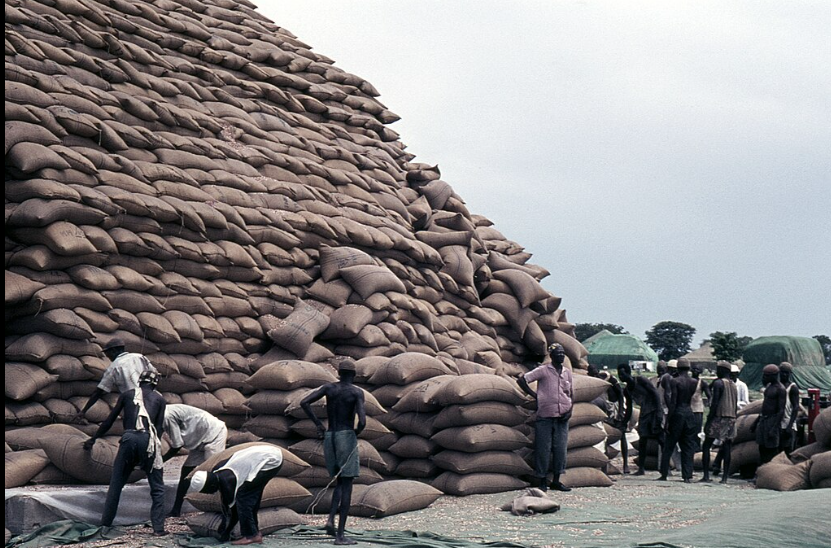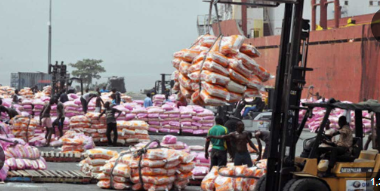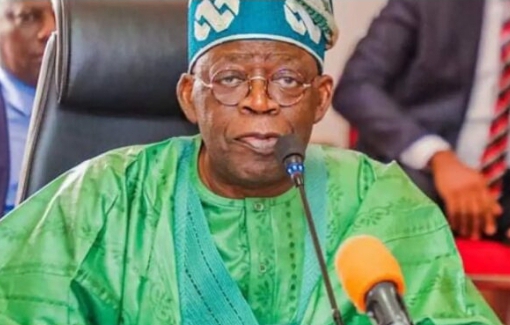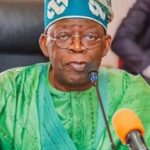[By Idowu Faleye: +2348132100608]
Amid Nigeria’s economic struggle from debt, inflation, unemployment, and a struggling currency, there is an ongoing debate over which pathway will truly lead to lasting recovery. Quick fixes solutions have often been the go-to approach, leaving the nation locked in cycles of dependency and economic instability. But the truth is that genuine, sustainable economic recovery won’t be found in temporary relief programs. It requires a difficult and disciplined focus on productivity and self-reliance.
It’s time for Nigeria to prioritize a productivity-centered approach to economic recovery. This means empowering local industries, focusing on agriculture, building technical skills, and creating an environment where businesses can grow and flourish. Let’s dive into why this approach is necessary and outline the key areas that can build the foundation for a stable, thriving economy.

A glance at history tells us that no nation has built lasting wealth through shortcuts. The advanced economies we look up to today—the United States, Germany, Japan, and China—all invested heavily in productivity as their foundation. For Nigeria, pursuing sustainable growth means abandoning our dependency on foreign aid, debt forgiveness, or borrowed economic models that don’t fit our unique challenges.
Nigeria’s economy has often mirrored the adage: “Give a man a fish, and you feed him for a day. Teach a man to fish, and you feed him for a lifetime.” Debt relief or foreign aid might provide temporary relief, but only a productivity-centered strategy will feed the economy for generations.
Read Also: The Impact of Multiple Tax Burdens on Production Costs and Commodity Prices in Nigeria
In the same way, just forgiving a debtor’s loans doesn’t make that individual economically stable in the long term. Economic stability requires work, effort, and a solid income stream that empowers independence. In the same vein, Nigeria must work to generate its own revenue streams and build a workforce equipped to support growth, or we’ll remain perpetually reliant on others.
1. Agricultural Revolution
Food security is non-negotiable for any economy. The agricultural sector not only provides sustenance but also creates employment opportunities, feeds other industries, and has the potential to reduce Nigeria’s dependency on food imports. Agriculture must once again become the foundation of Nigeria’s economic strategy.

A look at countries like Brazil and India shows us the transformative impact of an agricultural focus. Nigeria’s soil and climate provide it with an incredible comparative advantage, yet we’re still heavily reliant on imported food items that drain foreign reserves. By focusing on agricultural mechanization, promoting crop diversification, and providing subsidies or tax holidays for small-scale farmers, Nigeria can build a robust agricultural sector capable of sustaining both domestic demand and export opportunities.
2. Skill Acquisition and Vocational Training
Equipping Nigeria’s workforce with technical skills is crucial. It’s not enough to simply increase Youth Corps members’ allowances or provide temporary stipends to unemployed graduates. While such measures may bring short-term relief, they don’t prepare youths for the job market. What Nigerian economy needs is a skilled, innovative, and competitive workforce.
Read Also: Be Wary of World Bank’s Advice: A Cautionary Counsel for Nigeria Government
Vocational and technical skills in areas like machinery fabrication, electronics, and agriculture will have a lasting impact. An emphasis on trade skills not only offers job security but also builds the backbone of a workforce prepared for industrial growth. Imagine a Nigeria where skilled workers are producing homegrown solutions and innovations, reducing reliance on imported labour and technology.
3. Interest rates and Tax Holidays for Small Businesses
Small and medium enterprises (SMEs) are the heart of any economy. They drive job creation, encourage innovation, and foster economic resilience. Yet, in Nigeria, access to finance remains a significant barrier to SME growth, with high interest rates and excessive tax burdens stifling many promising ventures.
To create an enabling environment, the government must introduce policies that lower interest rates and offer tax holidays for startups and small businesses. These measures encourage entrepreneurs to take risks and invest in local production, further boosting productivity.
4. Duty-Free Imports on Machinery
Manufacturing is impossible without access to machinery and tools, and yet many of these essential items face high import duties in Nigeria. By removing or reducing these tariffs, we can encourage local businesses to procure the machinery needed for manufacturing, processing, and agricultural mechanization.
5. Restricted Importation of Locally Produced Goods
To build a self-sustaining economy, Nigeria needs to protect its local industries by restricting the importation of goods that can be produced locally. This would stimulate demand for locally manufactured products, create jobs, and encourage businesses to improve quality standards. The success stories of the Nigerian cement industry—where local manufacturers like Dangote Cement have thrived—serve as proof that this approach can work on a larger scale.
6. Stable Electricity Supply
The lack of stable electricity remains a significant obstacle to productivity. Power outages increase operational costs, reduce output, and hinder competitiveness. Countries with thriving economies like South Korea and China have invested heavily in their power infrastructure, understanding its foundational role in industrial growth.
For Nigeria, achieving stable electricity means reducing dependency on generators, which are both costly and environmentally harmful. Government initiatives must focus on expanding access to renewable energy sources and enhancing national grid stability.
7. Government Procurement Policy to Prioritize Local Goods
To truly stimulate local industry, the government must lead by example. A procurement policy that prioritizes locally produced goods would create substantial demand for Nigerian products. Such a policy would send a clear message to Nigerian businesses and consumers alike: local goods come first.
By shifting away from an overreliance on white-collar jobs, we can promote careers in agriculture, manufacturing, and technical fields—fields that create tangible, lasting value for the economy. White-collar roles are vital, but Nigerian economy needs a strong foundation in sectors that can directly boost production and innovation.
The Pitfalls of Foreign-Inspired Economic Models
Blindly adopting foreign economic policies is like a low-income earner trying to mimic the lifestyle of the wealthy. Nigeria’s circumstances, resources, and challenges are distinct, and any economic model we adopt must recognize these differences.
While the Western world built its industrial revolutions on a foundation of agriculture and manufacturing, Nigeria has skipped this crucial step, trying instead to jump directly into the high-consumption service economy. But without the productivity backbone of agriculture and manufacturing, this model is unsustainable.

Former President Olusegun Obasanjo’s debt forgiveness initiative in the early 2000s offered some respite from Nigeria’s massive debt burden, but it didn’t lead to long-term stability. Instead, the absence of a productivity-centered follow-up left the economy vulnerable to another debt crisis.
The path to genuine recovery requires addressing specific elements that bolster productivity. Let’s explore these core areas:
Pathways to Self-Sufficiency
To build an economy resilient enough to weather global downturns, Nigeria must focus on producing essential goods domestically. This includes food, clothing, shelter, medicine, Kitchen utensils, sanitary ware, beverages, alcoholics, bedding, leather, rubber materials, toiletries, furniture, electrical, electronics, and other essential commodities. A more self-sufficient Nigeria will experience reduced import dependency, currency stabilization, and job creation.

Imagine a Nigeria where essential goods—from agricultural produce to consumer electronics—are made locally. Not only would this create jobs and reduce crime, but it would strengthen the currency by reducing the need for foreign exchange. In this scenario, Nigeria’s economy would be fuelled by self-reliance and innovation, with a workforce skilled and motivated to support its industries.
The Benefits of a Self-Sufficient Economy
Job Creation: By focusing on production-driven sectors like agriculture and manufacturing, Nigeria can significantly reduce its high unemployment rates.
Crime Reduction: When people have stable jobs and economic opportunities, crime rates naturally decrease, leading to safer communities and a more productive workforce.
Hunger Eradication: Food security is a byproduct of agricultural productivity. A self-sustaining agricultural sector would reduce hunger, improve health outcomes, and foster national pride.
Currency Stability: Reducing import dependency strengthens the naira, as foreign currency reserves are preserved for essential imports and investments.
Economic Resilience: A diversified economy can better withstand global shocks, from oil price collapses to currency fluctuations, securing Nigeria’s future.
Read Also: Transform Nigerian Local Councils into Agric Development Centres to Enhance Productivity
In sum, Nigeria’s path to economic recovery is steep, but taking the hard road will lead to a stable and prosperous future. A productivity-centered strategy is not only essential but the only sustainable way forward. By prioritizing agriculture, technical skills, local production, and industry, Nigeria can lay the groundwork for lasting economic resilience.
Our leaders must adopt these measures as national policy, steering the nation towards productivity, self-reliance, and genuine economic recovery. This shift will not only create jobs and stabilize the currency but will also make Nigeria an economic force to be reckoned with.
References:
World Bank. (2023). Nigeria Economic Update. Available at: World Bank Nigeria Economic Update
Central Bank of Nigeria (CBN). (2022). Annual Economic Report. Available at: CBN Publications
African Development Bank (AfDB). (2022). Nigeria’s Agricultural Transformation Agenda Progress Report. Available at: AfDB Nigeria
National Bureau of Statistics (NBS). (2022). Labour Force Statistics: Unemployment and Underemployment Report. Available at: NBS Nigeria
International Monetary Fund (IMF). (2023). Nigeria: Staff Report for the 2023 Article IV Consultation. Available at: IMF Nigeria Reports
Obasanjo, O. (2006). Debt Relief and Its Economic Implications for Nigeria. Nigerian Journal of Economic and Social Studies.
McKinsey & Company. (2022). Re-imagining Economic Growth in Africa: How Agriculture and Manufacturing Can Drive Productivity. Available at: McKinsey Insights
Idowu Faleye:Ekiti-born Policy Analyst, IBM-certified Data Analyst, and Lead Analyst at EphraimHill Data Consult. Publisher of EphraimHill DataBlog, addressing topics of public interest. Reach him via WhatsApp at +2348132100608 or email ephraimhill01@gmail.com.
© 2024 EphraimHill DC. All rights reserved.











































![The Trend of Insecurity in Nigeria. [Part 2]](https://ephraimhilldc.com/wp-content/uploads/2024/09/Computer-Monitoring-of-Remote-areas.png)



































